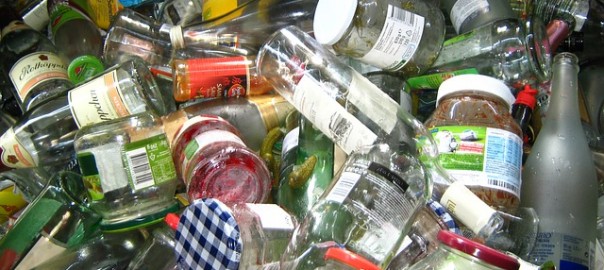R
With more and more councils considering charging for waste collection, pensioners, like everyone else, can ill afford to ignore recycling, and the following guide should help you to avoid such penalties and make a positive contribution to the environmental impact which your daily life makes on your neighbourhood.
Recycled paper can now be used to make everything from traffic cones and coffins to light bulbs and district nurses, and the average household generates enough paper each year to produce a small range of mountains somewhere in Asia. The Daily Mail is an outstanding source of recycled paper as it can be thrown away without the bother of reading it.
Since the main constituent of glass is sand, most bottles can be recycled to produce castles, yachts and pipers. With the application of a large hammer, Whitefriars glass can be turned into something you might want to keep, while scratching the word ‘Lalique’ into the surface of any glass item will increase its value fifty-fold.
As Black Sabbath have demonstrated, heavy metal can be recycled ad nauseam, though the type used in most beer and vegetable cans is less offensive to the ears.
With a little imagination, beer cans can be turned into attractive bracelets, pendants and tongue-studs, while ratatouille and asparagus tins are ideal for tie-pins, handcuffs and picnic tables. Baked bean tins have at least 57 different uses, unlike soup tins, which are categorised as toxic waste and should be disposed of in accordance with statutory regulations.
Clothing, shoes, plastic, nail clippings and trees can all be recycled, with many of the materials used to create road aggregate, cavity wall insulation, TK-Maxx sale items and velodromes. Most people are also biodegradable and can be disposed of in wheelie bins, old freezers and local recycling centres bonfires.

